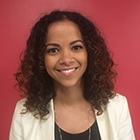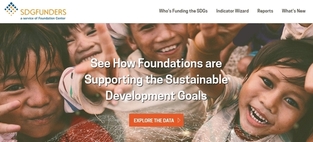Bringing Southern U.S. Grantees Together to Drive Progress Against HIV/AIDS
The U.S. South has never received funding proportional to its burden of HIV and AIDS, whether from the government or private resources. In 2017, to address the complexities of the epidemic in this region, Funders Concerned About AIDS (FCAA) brought together a group of grantmakers including Gilead Sciences, Ford Foundation, the Elton John AIDS Foundation, ViiV Healthcare, and Johnson and Johnson, forming a first-of-its-kind funding collaborative: the Southern HIV Impact Fund. Managed by AIDS United, the Fund aims to increase resources directed to the region and act as a catalyst for progress.
One way it does this is by engaging organizations that are new to HIV work but that have a deep history and broad reach among affected populations. This helps to ensure that those most impacted are able to play a vital role in identifying effective solutions. The Fund is also working to build a pipeline of new leaders through its 10-person, year-long cohort learning experience that more accurately reflects the current face of the epidemic — Black, Latinx, queer, and transgender.
As a program manager for the Fund, my first order of business was building community among and between grantee organizations—organizations that had varying perspectives and levels of understanding about the epidemic. Funders knew that a grantee convening early in the cohort’s establishment would help foster meaningful collaboration, not only amongst grantees but also the grantmakers. A convening would also create space for grantees to learn from each other and build cross-regional networks for support and enhance the cohort’s understanding of HIV in the South and learn more about intersecting barriers that impact their ability to effectively address the epidemic.
We scheduled this event to take place within the first four months of the grant cycle and prioritized the need to develop strategies around the most entrenched structural barriers. Some obstacles to accessing HIV treatment and support including poverty, limited educational opportunities, stigma, racism, sexism, homophobia, transphobia, and inequitable access to insurance and specialized care. By convening the grantees early on, those with specific focuses, such as racial or social justice, were better able to see how their efforts to advance these causes could mitigate barriers to HIV prevention and care. Similarly, organizations focused on the provision of HIV services were able to identify specific opportunities for cross-sector collaboration and intersectional interventions.
The meeting began with a session on using and implementing “people-first” language—emphasizing the individual over their health issue. Attendees learned about the historical, cultural, and societal links between language, policy decisions, and allocation of resources. They engaged around ways that language can be empowering and ways to use it to challenge rather than reinforce inequitable relationships and power dynamics. Attendees left with tangible ways of implementing these learnings, including one attendee who shared, "I will be conducting a language audit to see how and where I may be more self-aware of the powerful role of language in perpetuating stigma and layers of oppression." 
Another session focused on integrating healing justice into an organization’s service delivery, providing tools to assess the grantees’ mental health literacy and devising strategies to implement trauma-informed care and policies into their work. An increasingly popular area of research and practice, grantees were engaged and eager to learn more about this sensitive topic. One attendee vowed to, "be more introspective to people's needs to heal. Evaluating my own traumas and how they create bias in my work."
To date, the Southern HIV Impact Fund has:
- Made an initial investment of $2.65 million in support of 37 grantee organizations.
- Reached nine deeply impacted states: Alabama, Florida, Georgia, Louisiana, Mississippi, North Carolina, South Carolina, Tennessee, and Texas.
- Mobilized more than $200K in rapid response grants, including emergency support for organizations serving people with HIV in regions devasted by hurricanes.
- Trained 10 established and emerging leaders from Southern communities working to end HIV in the South.
As the Fund begins its second year, we will build on efforts to combat the structural systems and societal norms that pose significant obstacles to accessing HIV treatment and support. Our hope is that other grantmakers will see opportunities to partner in this effort and learn from what we learned with our grantees. Together, we can expand the reach and impact of our work and change an unjust HIV/AIDS equation in the U.S. South by putting grantees in this region first.
Editor’s Note: The Southern HIV Impact Fund will be featured on a panel – Catalyzing Communities: Strengthening Philanthropic Funding for Community Action on AIDS – at the upcoming FCAA AIDS Philanthropy Summit. GrantCraft’s director Jen Bokoff (@jenbo1) will moderate.


